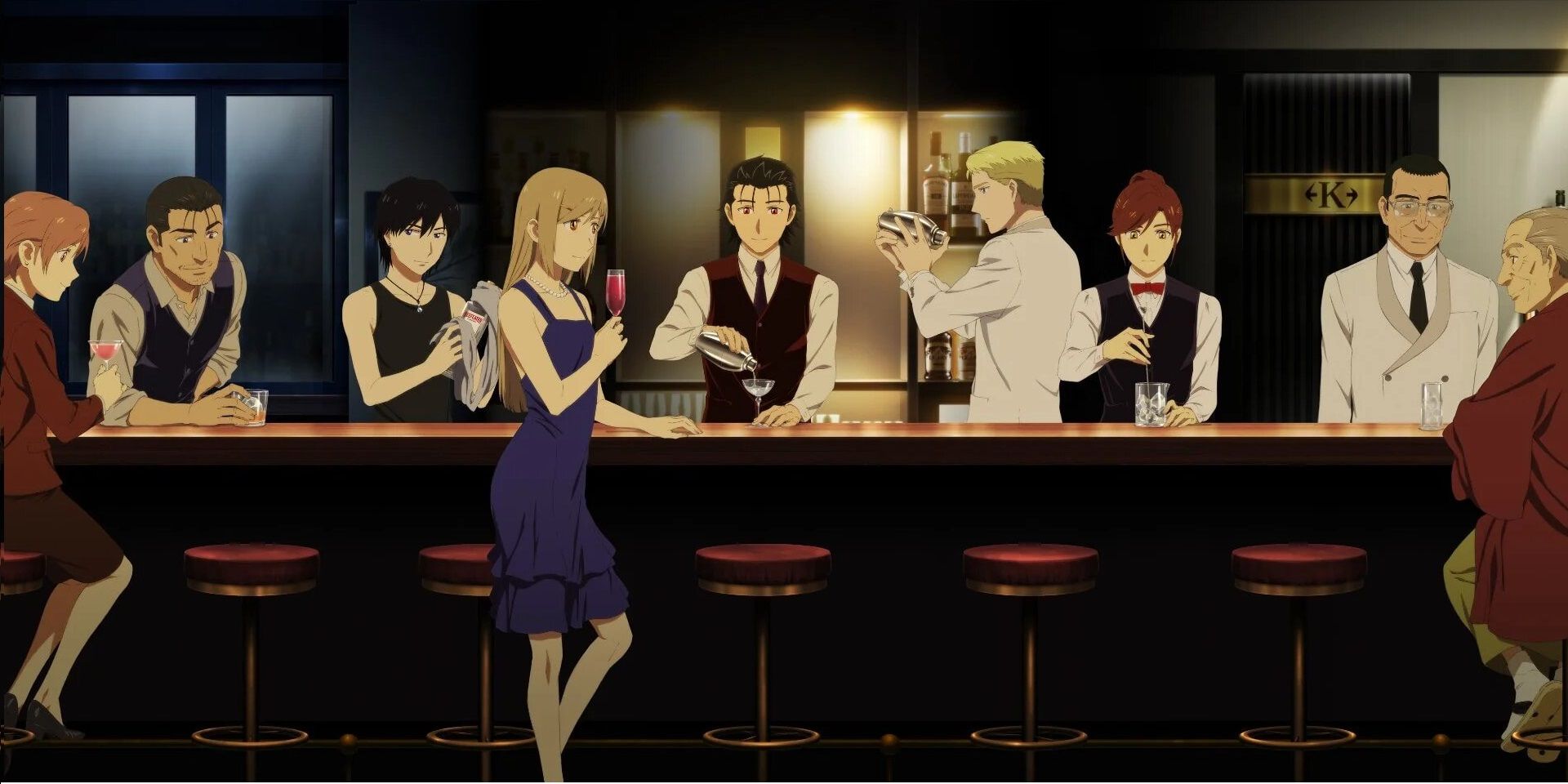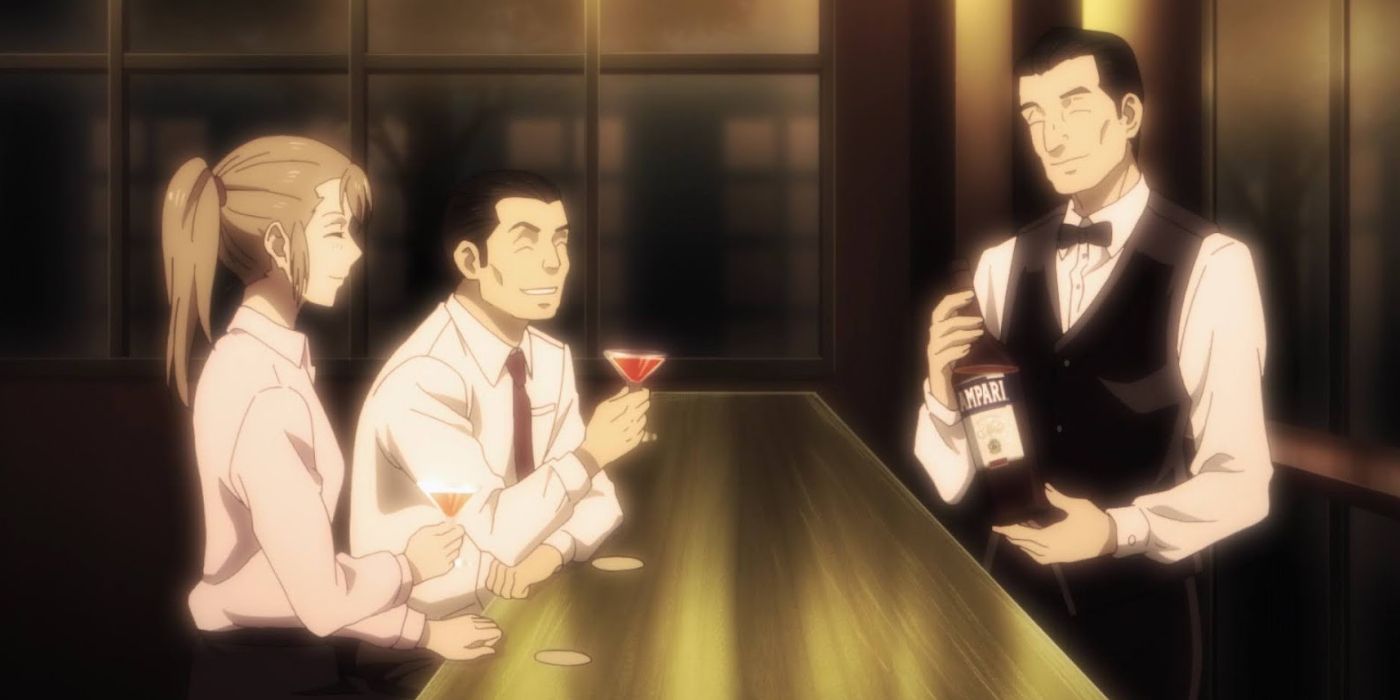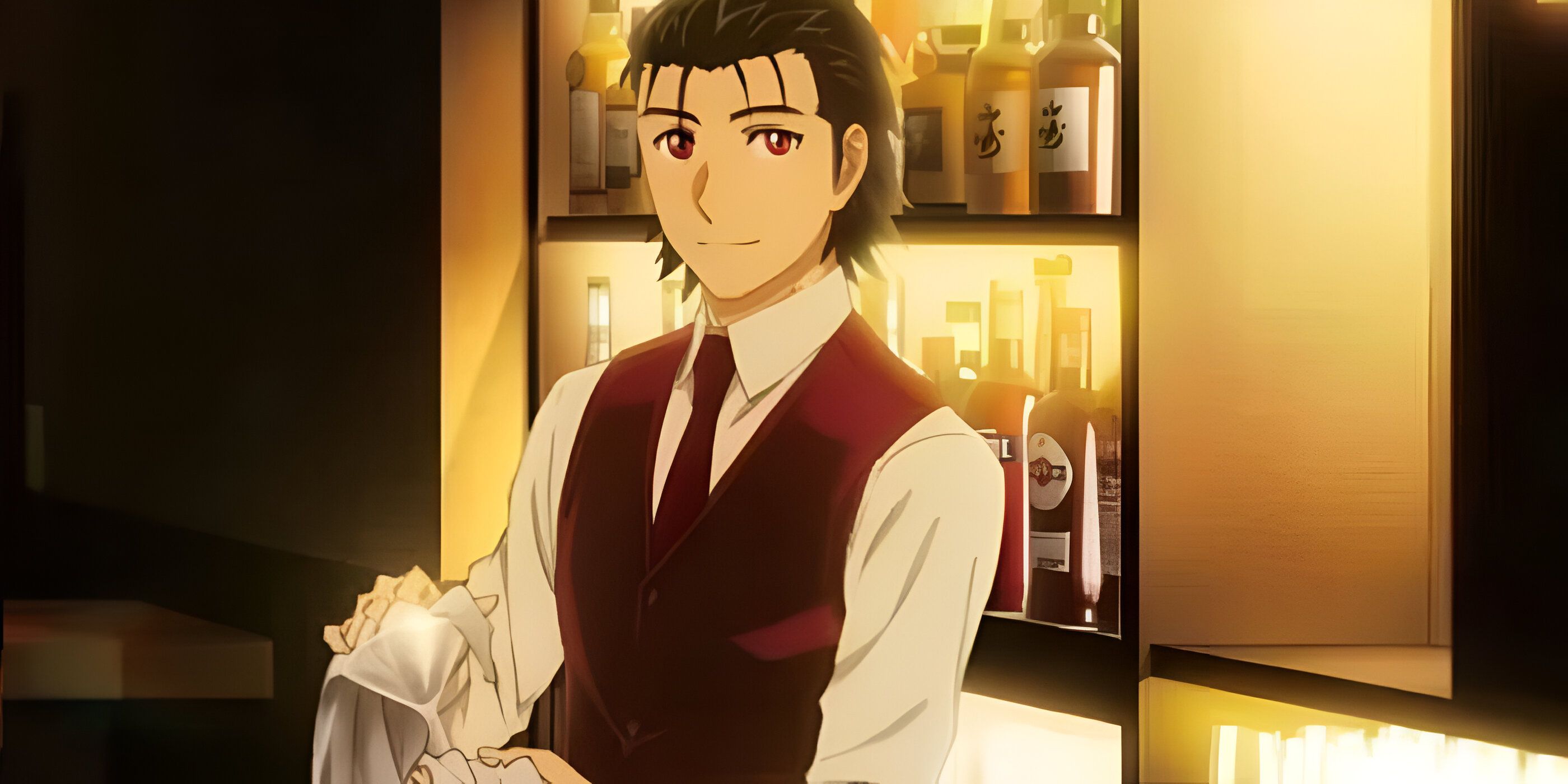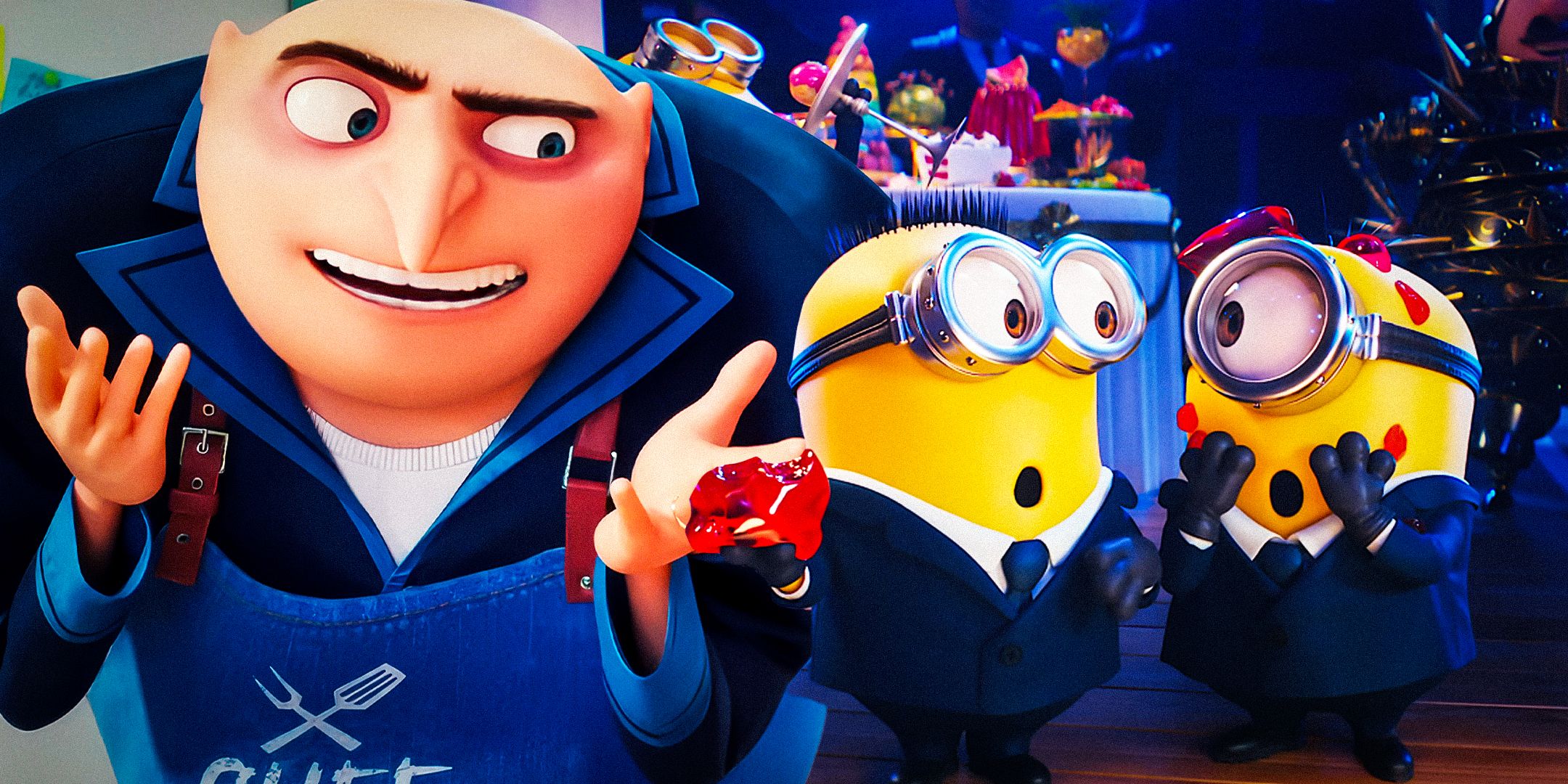Although officially a slice-of-life series, the new anime Bartender: Glass of God is perfect for those who are trying out the genre for the first time because the beginning episodes give more of a spin to sports manga and even feature typical classic shonen tropes rather than following the typical slice-of-life format. It’s understandable why the series is considered a slice of life, however, since the eponymous bartender, Ryū Sasakura, creates cocktails and other alcoholic beverages based on the lives of those who enter his establishment.
What newcomers to this genre will undoubtedly be drawn to is how the art of bartending is portrayed. Like most sports manga, Bartender delves into the minute subtleties of the profession to an almost ridiculous degree, right down to what temperature and when a certain beverage should be chilled and how quickly one should stir a mixture.

Some of the other embellishments are not specific to sports manga, like whenever a bartender shares the backstory of a specific drink, but in typical anime fashion, it becomes relevant to the story by how its history actually relates to what the customer wants or needs to drink at that moment.
The Protagonist’s Bartending Skills Are Akin To Superpowers
Produced by Liber

In fact, it’s that almost gamified aspect of bartending where the series begins to delve into shonen territory, especially when an impromptu competition in episode #4 feels akin to how battles with superpowers are treated. Up to that point, Ryu’s strategy of mixing had already been established through his intense attention to detail and perceptiveness, which gave him the means to not only create the right cocktail but an explanation as to why he chose it. In typical shonen fashion, his opponent breaks the pre-established rules that had always signified success to broaden the series’ already highly complex version of a “battle system”.
Similarly, Bartender also gives another fun spin to the ubiquitous question of what kind of hero the protagonist wants to be in shonen by connecting it to the understood terminology of its respective focus. In this case, it’s what type of bartender they want to be. Most importantly, the series gives a formula for how to achieve this, which involves putting their own personality into the universally recognized king of cocktails, the martini, which has something known as “a face” that makes it naturally so versatile.
This combination of the recognized “king” of this respective profession and the multi-faceted symbolism of “face” that the series connects to a bartender’s unique sense of self is a stunning metaphor that works on many levels, which any anime fan can really appreciate.
Despite Being Slice-Of-Life at Its Core, the Series Is Welcoming For All Anime Fans
While slice-of-life can be daunting for newer anime fans, Bartender: Glass of God has something for everyone

As a whole, slice-of-life is understandably a more difficult genre to get invested in for some anime fans, since their stories are generally slower paced, as a result of honing in on a specific aspect of a character’s life to the point of including almost too much detail. Most of the activities therein might therefore feel mundane in comparison to most plot-driven series, especially since there is rarely any conflict to begin with, and when there is, it’s generally quite subtle.
Bartender doesn’t feel this way just because the anime focuses so much on Ryu’s craftsmanship and the lives of those who seek a drink; complemented with an array of bartending history and strategies that they feel almost too streamlined and fast-paced to be a slice-of-life. Of course, the overarching story of a hotel trying to hire Ryu definitely fits into the slice of life format, but Bartender: Drink of God is so much more than that, and that’s actually a good thing, for both veteran and new fans of the genre.





